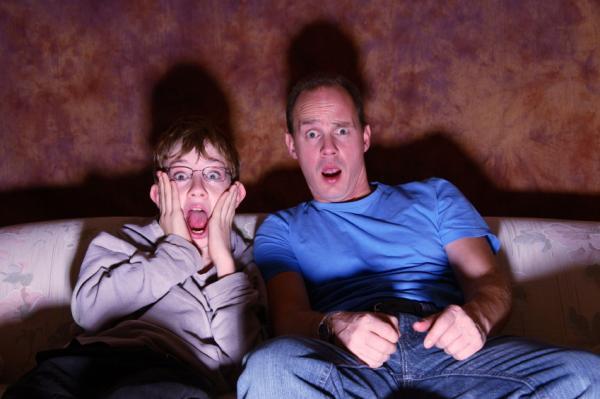
What are you afraid of? Is it something physical, like Indiana Jones’ legendary fear of snakes? Or something more metaphysical, like the fear of being alone? How do you deal with it?
There might be no better time than Halloween to contemplate what makes us fearful and which ways to take courage in life.
“I think that there are two basic types of fear: fear of the known that can hurt us and fear of the unknown. We fear the things that we know can hurt us, or harm us in whatever way because we have experience in those things. But we also fear the things we don’t know,” said Shannon Dodson, a junior art major.
Two types of fear: the known and the unseen
Some people consider there to be two types of fear — a view supported by the two main types of horror movies in the genre.
The first — the known — is that of blood, guts and gore. Violent, aggressive and in-your-face, this fear is much more visceral than the other. It is the terror you might feel by standing in front of a tiger just released from its cage or the sick and dizzy drop of your stomach at the sensation of falling from a great height. We feel it at being rejected, being misunderstood or even knowing that someone is afraid of us.
The second type most people think of is the kind they remember from when they were children — the fear of the unseen and the unknown. Is there a monster in the closet? Is there something right behind me so that I’m afraid to turn and look? This kind of fear is unlike the other in that its terror comes from its invisibility. No matter what, the monster will never be quite as terrifying once it is fully in view. Then there are the more cerebral fears, like being alone or being unloved, more metaphysical fears.
Alternative fear: the seemingly innocent
I have a theory that there is a final type of fear, far scarier than the others. We tend to forget about it, because of its very nature. This is the fear of something that appears good but is, in fact, evil.
Many modern horror films have tapped into this, using this fear for their larger concepts of the first and second kind of fear. They use children as the true horror of the film, children with knives or other deadly weapons, because on some level they recognize the juxtaposition of innocence and monsters is far more disturbing than anything else.
We fear the masks of Jason and Michael Myers because they are twisted and evil in appearance, but we fear far more the possibility that a sweet mask hides a devil underneath. Another example is the story of Dorian Grey. A beautiful man, Dorian had everyone fooled, for his heart was desperately evil.
Do we forget what our response to fear should be? God gave us a command in Philippians 4:6: “Do not be anxious about anything, but in every situation, by prayer and petition, with thanksgiving, present your requests to God.”
Take courage, not fear
Especially during the Halloween season, where fear is a more pressing ideal than any other time of the year, it becomes easy to forget about courage. We convince ourselves that courage and strength are out of our reach, so why should we try to get them?
Much has been said on the subject of courage before I ever sat down to write about it, most of which is better put than I could ever hope for.
The most fitting quotation that comes to mind is Nelson Mandela’s statement: “Courage is not the absence of fear, but the triumph over it.”
Not all fear is unhealthy. The Bible tells us we are to fear God with a reverent fear. But we should conquer any fear resulting from our lack of trust, because we have an ally before whom all causes of fear are revealed to be unworthy of consideration.







